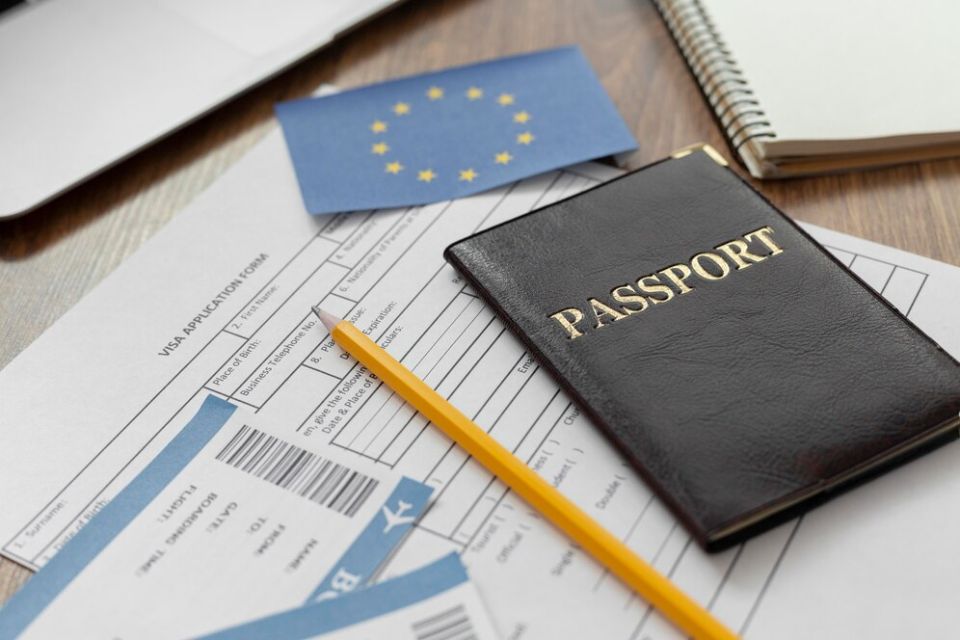Dreaming of starting a new life in another country? Whether you’re chasing career growth, cultural adventure, or a better work-life balance, finding a job abroad can be the key to making your expat dream a reality. But where do you start?
In this article, I’ll break down how to find a job abroad step-by-step — from research and networking to visas and interviews — so you can land your ideal role overseas with confidence.
1. Define Your Career and Location Goals
Before you dive into job hunting, take time to reflect on your goals:
- Where do you want to live? (Europe, Asia, the Middle East, etc.)
- What kind of work are you qualified for or excited to do?
- How long do you plan to stay abroad?
- How difficult will it be to get a working Visa?
- Can you freelance?
- Are you ok taking a step down in your career?
Each country has unique visa rules, job markets, and cultural expectations. Narrowing your focus early helps you tailor your search and increase your success rate.
2. Research the Local Job Market
Once you’ve chosen your destination abroad, dig into its job landscape, and identify how your profile and skills can match. Look for:
- In-demand industries (e.g., IT in Germany, teaching in Japan, finance in Singapore), and market trends
- Average salaries and cost of living for your level of experience and job type
- Language requirements: do you need to speak the local language, or are English-speaking jobs available?
Websites like LinkedIn, Glassdoor, Indeed, GoAbroad.com and HeyGlobally are great places to start. You can also explore country-specific job boards or expat Facebook groups.
3. Tailor Your CV to your expat destination and job
Your resume should be tailored to the country you are aiming: I’m not only talking about language, if you don’t speak the language, don’t translate it, but adapt the format to the local customs.
- Format differences: In Europe, a “CV” often includes a photo and birth date, while U.S. employers prefer a concise, photo-free résumé.
- Emphasize international skills: Highlight adaptability, cross-cultural communication, and language abilities.
- Include local references: if you have worked with parnters or colleagues from the country ask them for a reference. This can go a long way in Germany and show you already have a grasp of what it’s like working in this market.
- Include volunteer or travel experiences that show global awareness.
- Work on cover letters to showcase your motivation: they aren’t always required but can make a difference when you are up against locals or people already in-country.
Pro tip: reach out to recruitment consultants to get help with the localisation of your resume.
4. Leverage Networking and Expat Communities
Networking and making connections abroad is one of the most effective ways to find a job abroad. Connect with:
- Local expat networks
- Professional associations and communitites in your field, they generally have job boards and can be very international when online.
- University alumni groups abroad.
- LinkedIn groups for international professionals.
Attend online webinars, networking events, or local meetups. Many expats find jobs through recommendations rather than traditional job boards.
5. Understand Visa and Work Permit Requirements
Great you got a job offer! Before you accept it make sure you understand the visa process, and all the admin you may need. Each country has its own regulations regarding:
- Work permits and sponsorships: will the company sponsor you or can you work without a VISA
- Skill shortage lists which can make your application easier and more chances of a sponsorship.
- Student or working holiday visas if you’re just starting out.
- Tax related information and healthcare are to be taken into account when negotiating your salary.

Check your destination’s government immigration website for up-to-date details. Applying early can save you from costly delays.
In your negotiation, ask if they can offer relocation packages.
6. Prepare for Cross-Cultural Interviews
International interviews may involve cultural nuances. Research business etiquette, communication styles, and expectations in your target country.

In this podcast interview, David shares the culture shocks he faced in the workplace in Japan, he was surprised how much hierarchy and seniority was valued.
For example:
- In Japan, humility is valued avoid over-selling yourself.
- In the U.S., confidence, entousiasm, results and self-promotion are key.
- In Germany, precision and punctuality are essential.
7. Use Expat Job Platforms
Here are some reliable websites for finding jobs abroad:
- LinkedIn: Global professional network.
- GoAbroad.com: Work, study, and volunteer opportunities.
- Expat.com: Job listings by country.
- Heygobally.com: Job listings by country and localisation services (CV, market insights, interview preps etc.)
- Indeed Worldwide:Localized job search in dozens of countries.
- Remote OK or We Work Remotely: Remote-friendly international roles.
8. Be Flexible and Persistent
Finding a job abroad can take time. Be patient, flexible, and open to entry-level or contract roles that help you get your foot in the door. Many expats start with temporary positions, remote work, or teaching English before moving into long-term careers. Some also completely reinvent their career and start their own business.



Leave a Reply